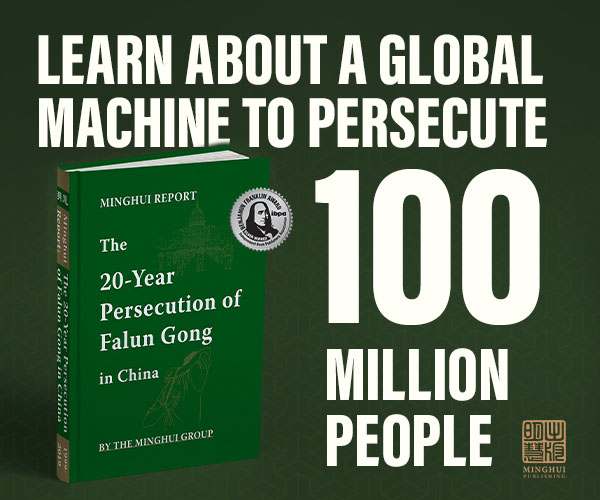(Minghui.org) I used to think that by doing the three things well, I was cultivating myself well. When tests came along, I failed to look within and always blamed others for causing the problems. Because of that, I was simply going through the motions with my Fa study and I couldn’t see the deeper meaning of the Fa.
Master said,
“Our practice has a well-defined focus. It really makes your attachments evident and sees to it that they are removed. This accelerates your spiritual development.” (The Fifth Talk, Zhuan Falun)
“It allows you to make the fastest and most efficient progress, since the practice is all about your heart and mind.” (The Eighth Talk, Zhuan Falun)
Gradually, I understood that cultivation has two main aspects: one is to study the Fa more so as to better comprehend the Fa-principles and another is to cultivate xinxing.
How to cultivate xinxing then? There have been many sharing articles on this topic published on the Minghui website. They were all very helpful to me. I also asked my local practitioners about their experiences. One practitioner said everything we encountered, even before we began cultivation, was to temper our heart and help us improve xinxing. Another practitioner reminded me of what Master said, “In truth, the spiritual journey is none other than an ongoing process of learning to let go of the things of this world that we may be attached to.” (The First Talk, Zhuan Falun)
What attachments should I remove? I realized Master has already pointed them out to us in Zhuan Falun, such as jealousy, competitiveness, resentment, the mentality of showing off and zealotry. We should constantly purify ourselves so as to assimilate to Truthfulness-Compassion-Forbearance and meet the requirements of the Fa at different levels. In other words, we should strive to become our divine true selves.
I began to pay attention to what was on my mind. For example, if I started to think about something while doing the exercises, that’s exactly the attachment I should let go of.
One day I saw two people fighting on the street and realized that was probably a reminder that I still had the competitive mentality. When lustful thoughts appeared in my mind, I reminded myself that I wouldn’t be able to succeed in cultivation if I still had the attachment to lust. I also paid attention to thoughts that pointed fingers at fellow practitioners and also reminded myself that I needed to cultivate myself, not others.
Of course, there were times when I struggled to distinguish my attachments from my true self. When jealousy, resentment, or other human notions popped up, I sometimes was still swayed by such emotions. When I realize that, I reminded myself that my true self came from the universe and was in sync with the universe’s characteristics of Truthfulness-Compassion-Forbearance. When we came to the human world, we were buried by various human notions and desires. When we cultivate, we need to remove the postnatal thinking that is blocking us from ascending or assimilating to the Fa.
As I continued to make progress in xinxing cultivation, I realized that getting rid of our human desires and human thinking is only one aspect of improving xinxing. How well we validate Dafa and save sentient beings also reflects our xinxing level. True cultivation is about becoming a completely altruistic person. Only then can we meet the requirement of the new universe.
I also realized that looking within to improve our xinxing isn't limited to any specific situations, such as when conflicts arise. Every once in a while, I would reflect on my cultivation and examine if I failed to do something well recently and what aspect I needed to make improvement.
Above is my limited understanding at my limited level. I welcome fellow practitioners to point out compassionately anything not in line with the Fa.
Editor’s note: This article only represents the author’s understanding in their current cultivation state meant for sharing among practitioners so that we can “Compare in studying, compare in cultivating.” (“Solid Cultivation,” Hong Yin)
Views expressed in this article represent the author's own opinions or understandings. All content published on this website are copyrighted by Minghui.org. Minghui will produce compilations of its online content regularly and on special occasions.
Category: Improving Oneself










